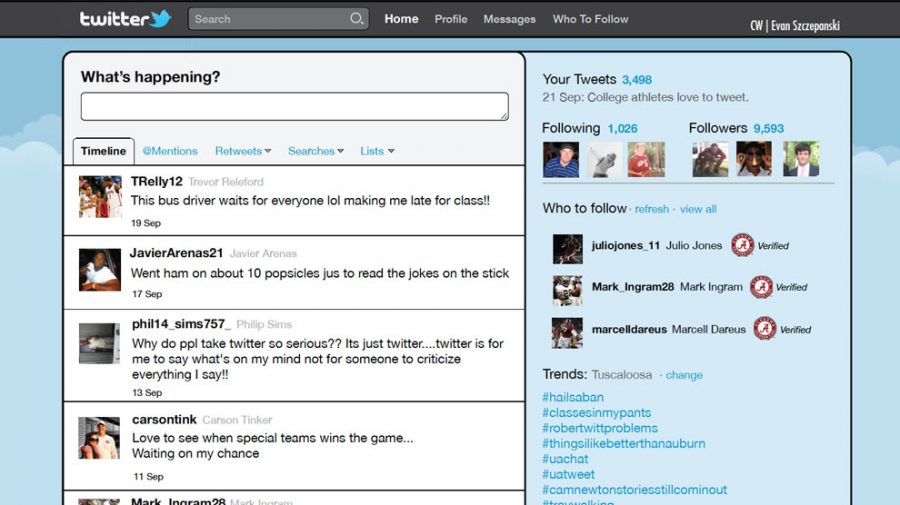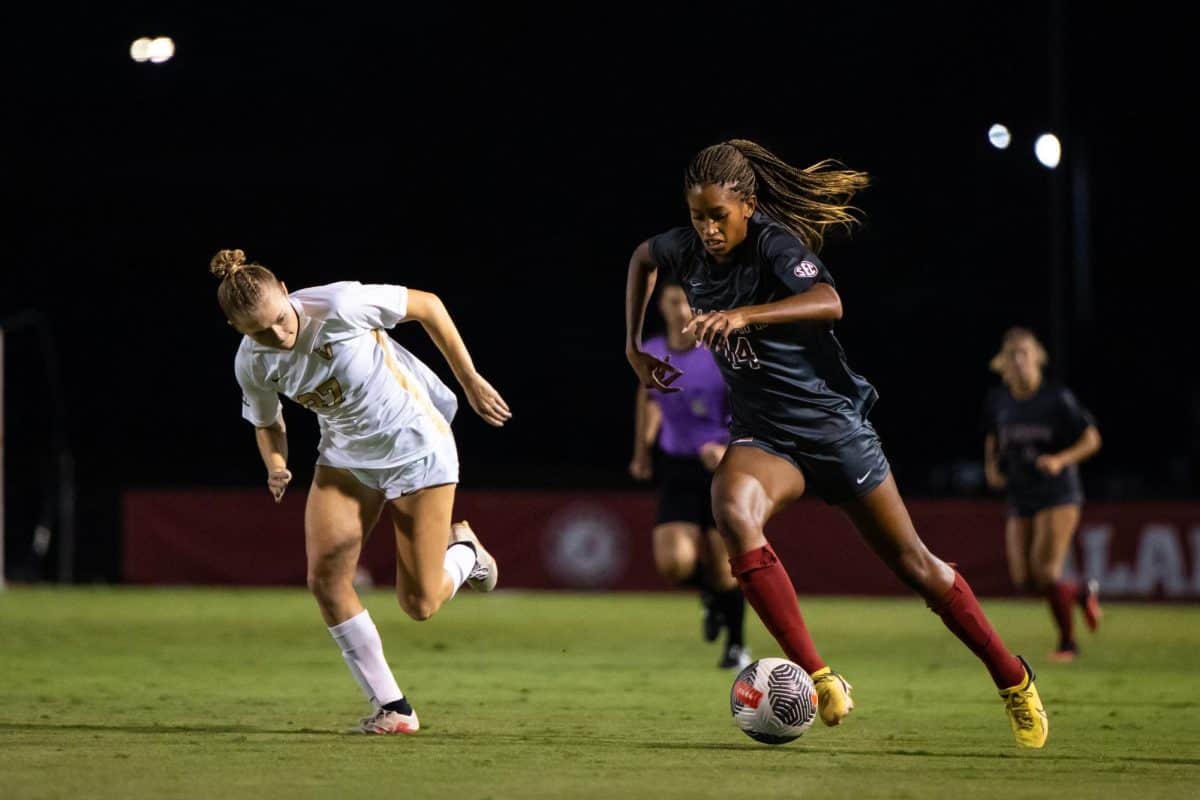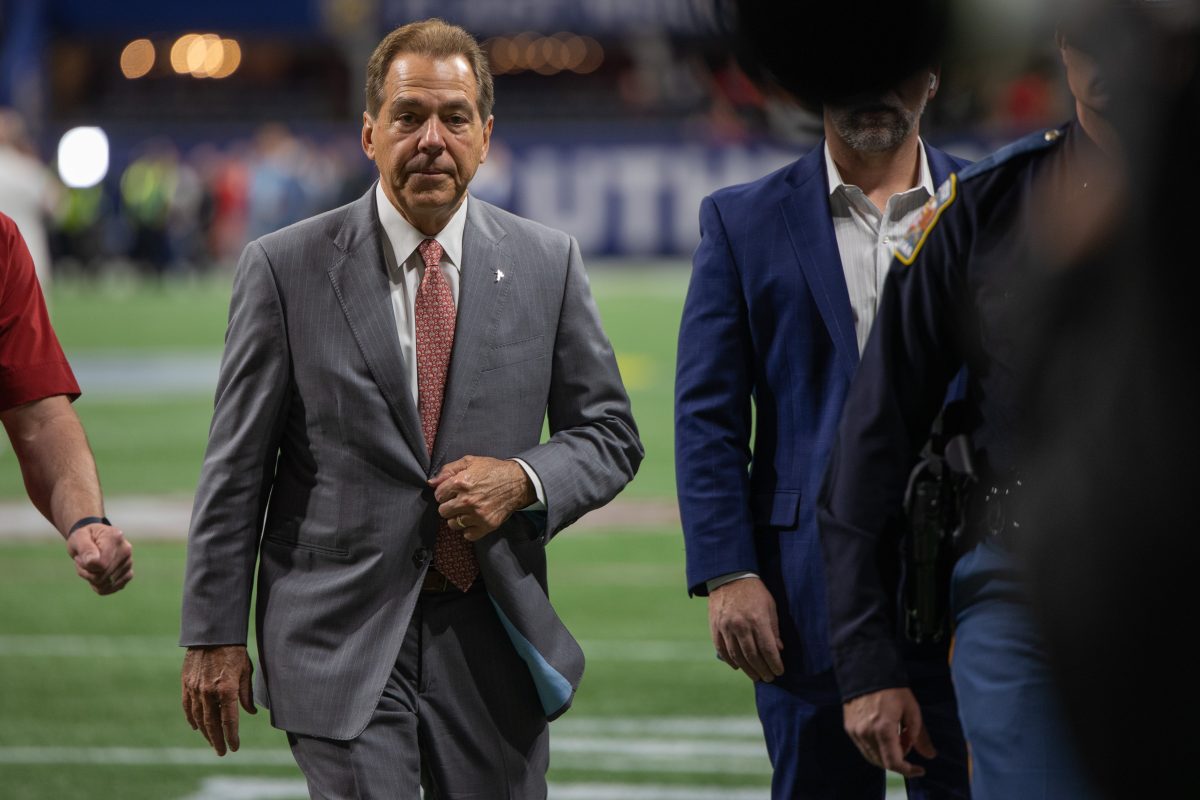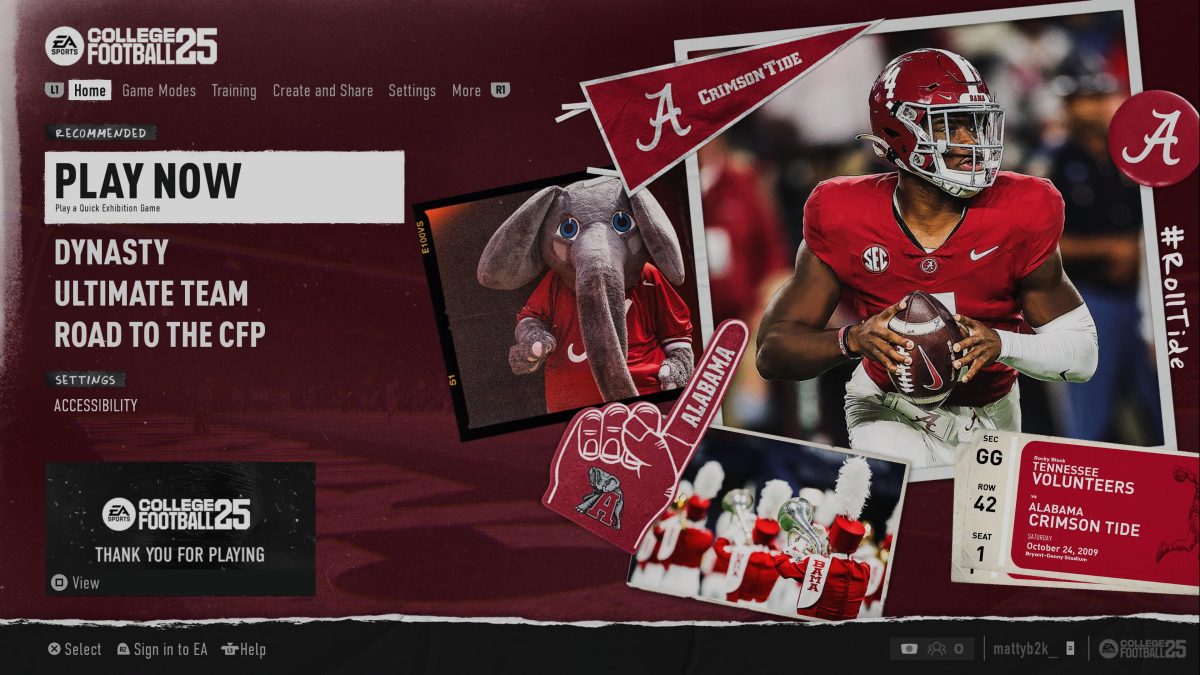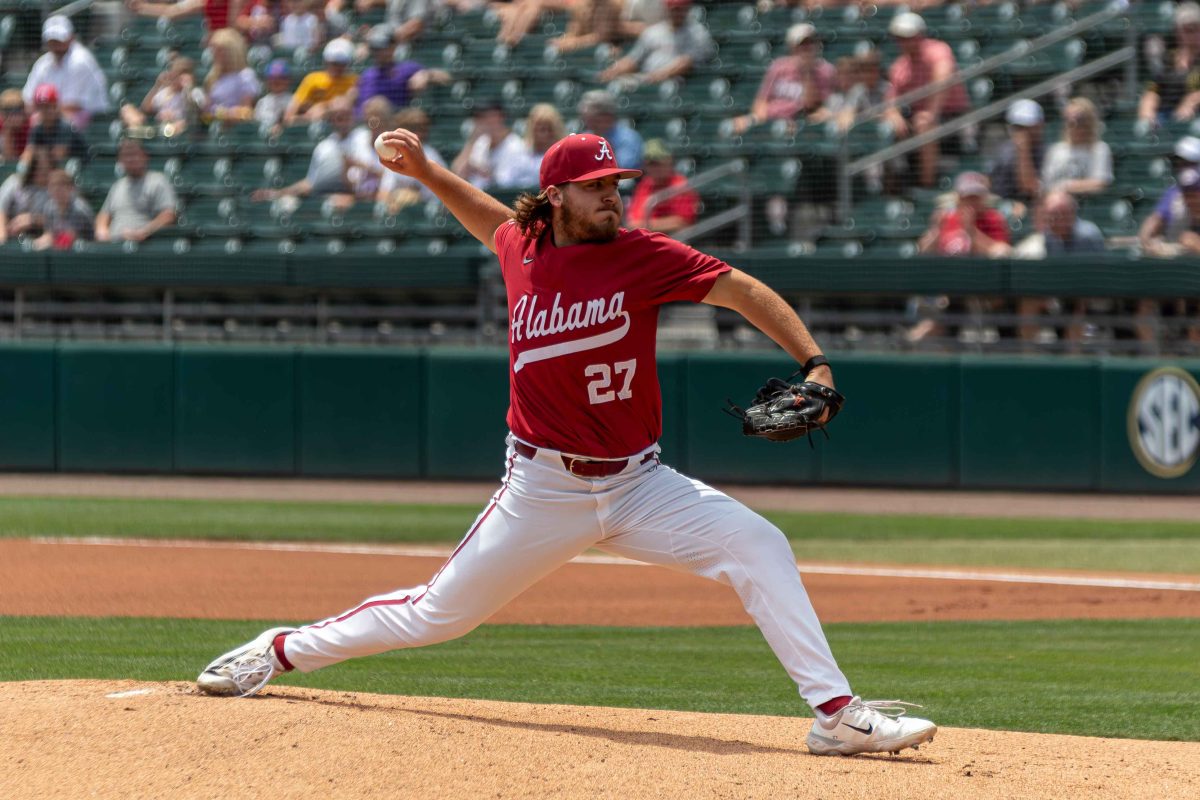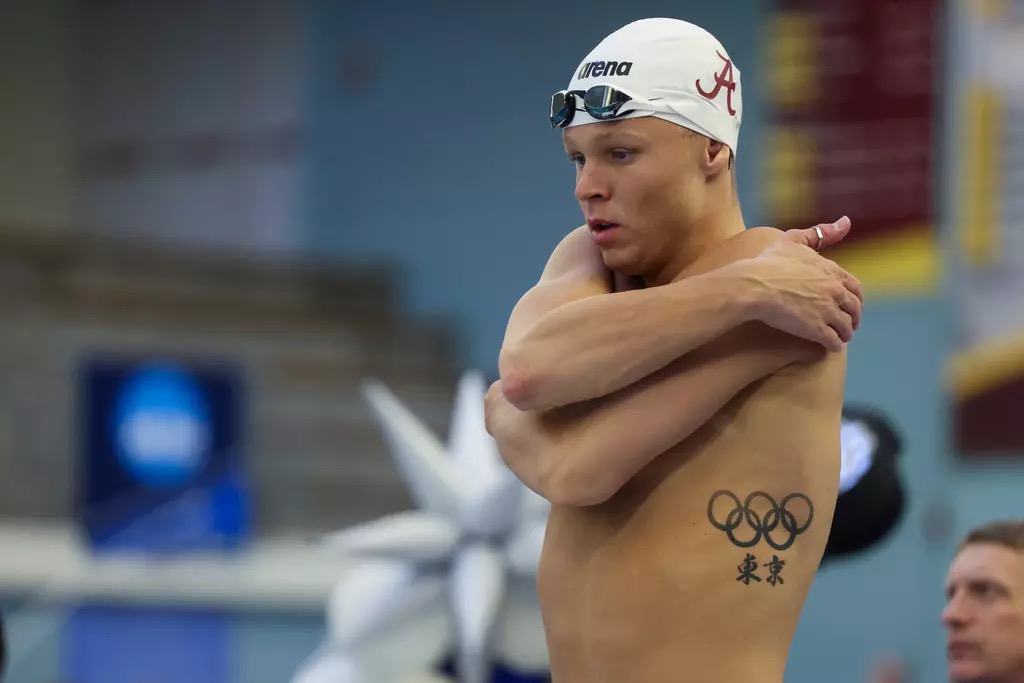With the explosion of social media over the past couple of years, it’s almost guaranteed that not everyone is going to use it appropriately. But when it’s a big-name athlete who tweets something inappropriate, it can reflect badly on the player and the team.
Alabama’s football team only has about 15-20 guys that tweet, according to Jeff Purinton, associate athletics director. However, for those athletes who do tweet, they are expected to do so responsibly.
“Our policy is, we don’t want guys to Twitter information about our team that creates an advantage for the other team,” head coach Nick Saban said. “And secondly, we monitor guys’ Twitter so that they are not putting information out that could be personally damaging to them in the future in terms of the kind of information that they choose to put out there, but we don’t have a policy where you can’t do it.”
Linebacker Jerrell Harris said he doesn’t have a Twitter, but that the athletes are instructed on how to handle their social media usage.
“Your comments are very important – making sure you’re saying the right things and representing yourself, not only the team and the University,” he said.
Wide receiver Darius Hanks is one of the players who does have a Twitter account, and he said he treats Twitter like a business page, not for anything personal.
“I really try not to get into anything personal,” Hanks said. “Anything my friends might say, I try to ignore them. Fans may tweet me and I may retweet what they say, but other than that, I try not to get into the Twitter thing that much because it can get a lot of guys in trouble.”
On the other side of the state, Auburn University has a code of conduct policy that all its student athletes must sign and adhere to. Social media is part of the policy and is monitored for the athletes.
“Our media relations staff, as well as each respective sport, monitors our student athletes’ social media use from Twitter and Facebook, things of that nature, and we provide monthly reports to each coaching staff, and then if there’s any misuse, then that is handled internally with each sport,” said Kirk Sampson, Auburn associate athletic director for communications.
“The code of conduct policy that each student athlete signs is really all-encompassing,” Sampson said. “It’s not just social media. It’s other things – talking about representing themselves and their team, the athletic department and the University in the highest regards. That’s where it does include some language about social media.”
During the summer, Auburn commit Zeke Pike, a quarterback from Kentucky, was tweeting about the Iron Bowl rivalry, praising Auburn in every way over Alabama. A few examples include him tweeting about going to church to “pray for all these Bama souls,” and that he knew he was supposed to go to Auburn when he “stepped on Alabama’s campus and hated everything.”
Sampson said he can’t comment on specific recruits, per NCAA regulations, and that he wasn’t sure if there was a policy regarding recruits’ social media at Auburn.

